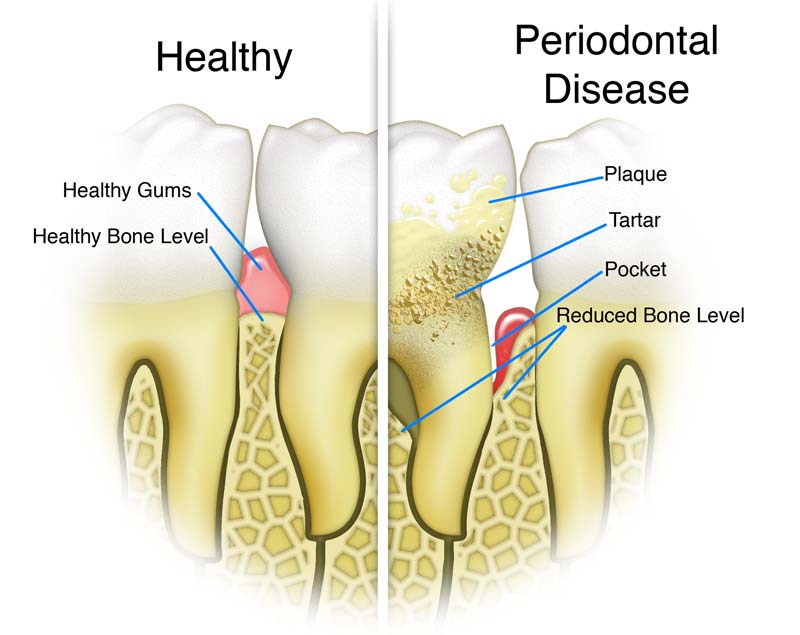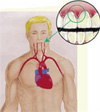


Periodontal disease is a gum and bone inflammation caused by the bacteria (germs) in the mouth. The earliest stage of gum disease is called Gingivitis. At this stage, gums can become red, inflamed and bleed easily. The later stages, when bone loss and possibly tooth loss can occur, are known as Periodontitis.

In the earliest stages, periodontal disease causes few signs or symptoms, and you may not be aware of a problem until your gums become soft and bleed slightly when you brush your teeth. As the disease progresses, you may notice more-serious changes, including:
The main cause of the periodontal disease is the presence of plaque and calculus in the mouth. However, a number of factors can contribute to aggravate the condition.

Smoking is a significant risk factor for periodontal disease. It creates a favorable environment for harmful bacteria and interferes with the normal mechanism for limiting bacterial growth in the mouth. Smoking is responsible for the vasocontruction of blood vessels so smokers are less likely to respond to treatment than nonsmokers are.
Gum can recede for different reasons : mechanical , inflamatory or anatomical . In this situation gum graft is performed to recover the exposed root

Some persons may do everything right and still develop periodontal disease. In that case, they may have inherited a predisposition to gum problems.
Diabetes makes patient more prone to many infections, including gum infections. Gingivitis and periodontitis impair the patient body's ability to utilize insulin, making diabetes harder to control.
Changes in hormone levels that occur during pregnancy, menopause or even menstruation can make the gum more susceptible to periodontal disease.
A poor diet, especially one deficient in calcium, vitamin C and B vitamins, can contribute to periodontal disease.